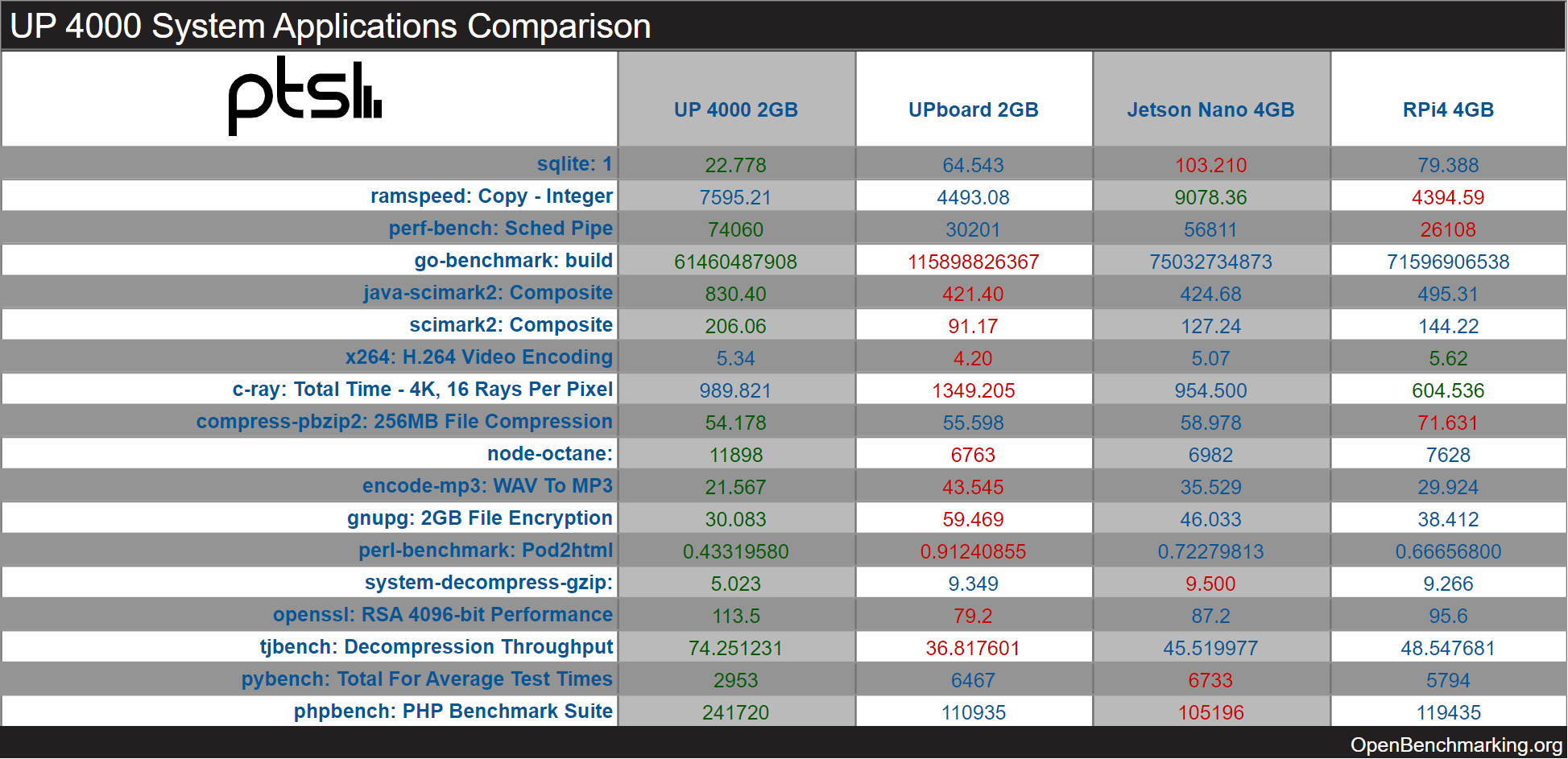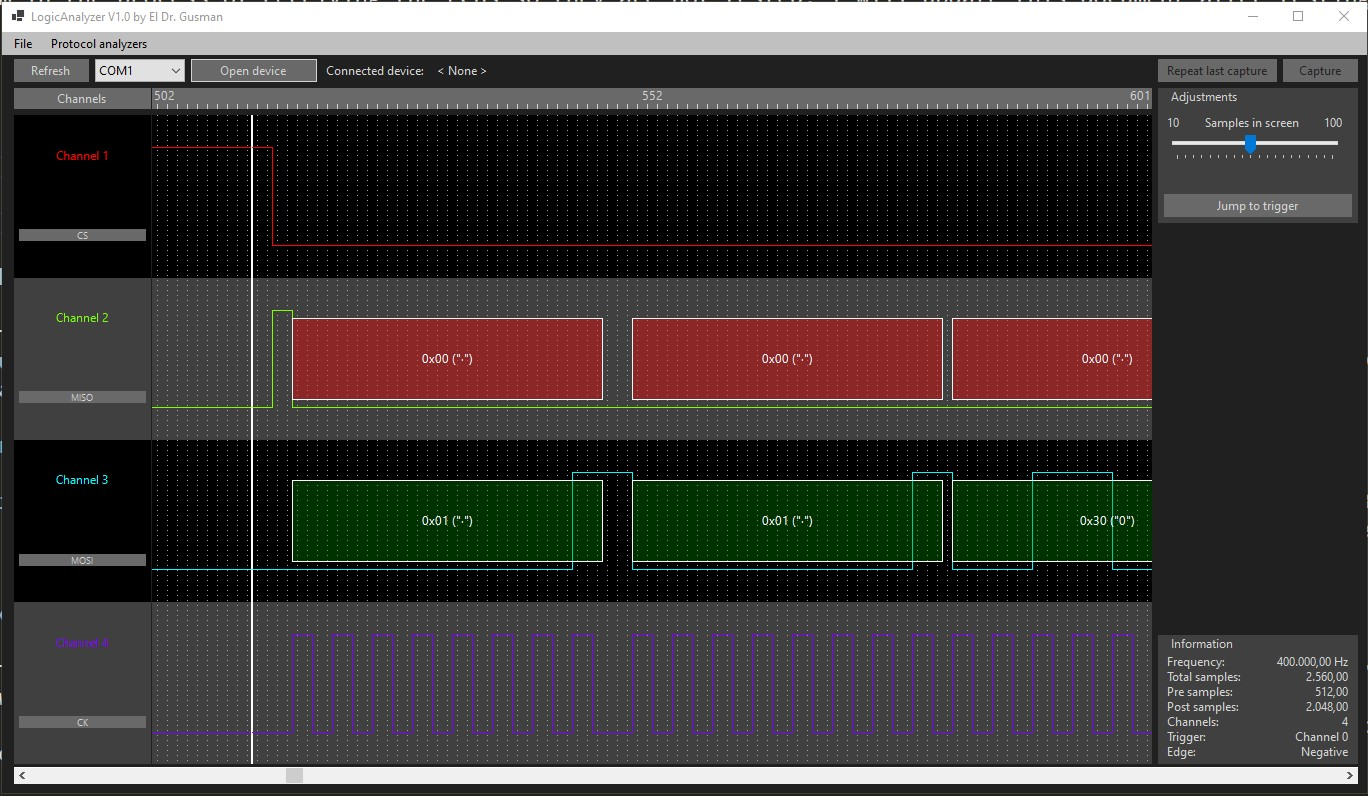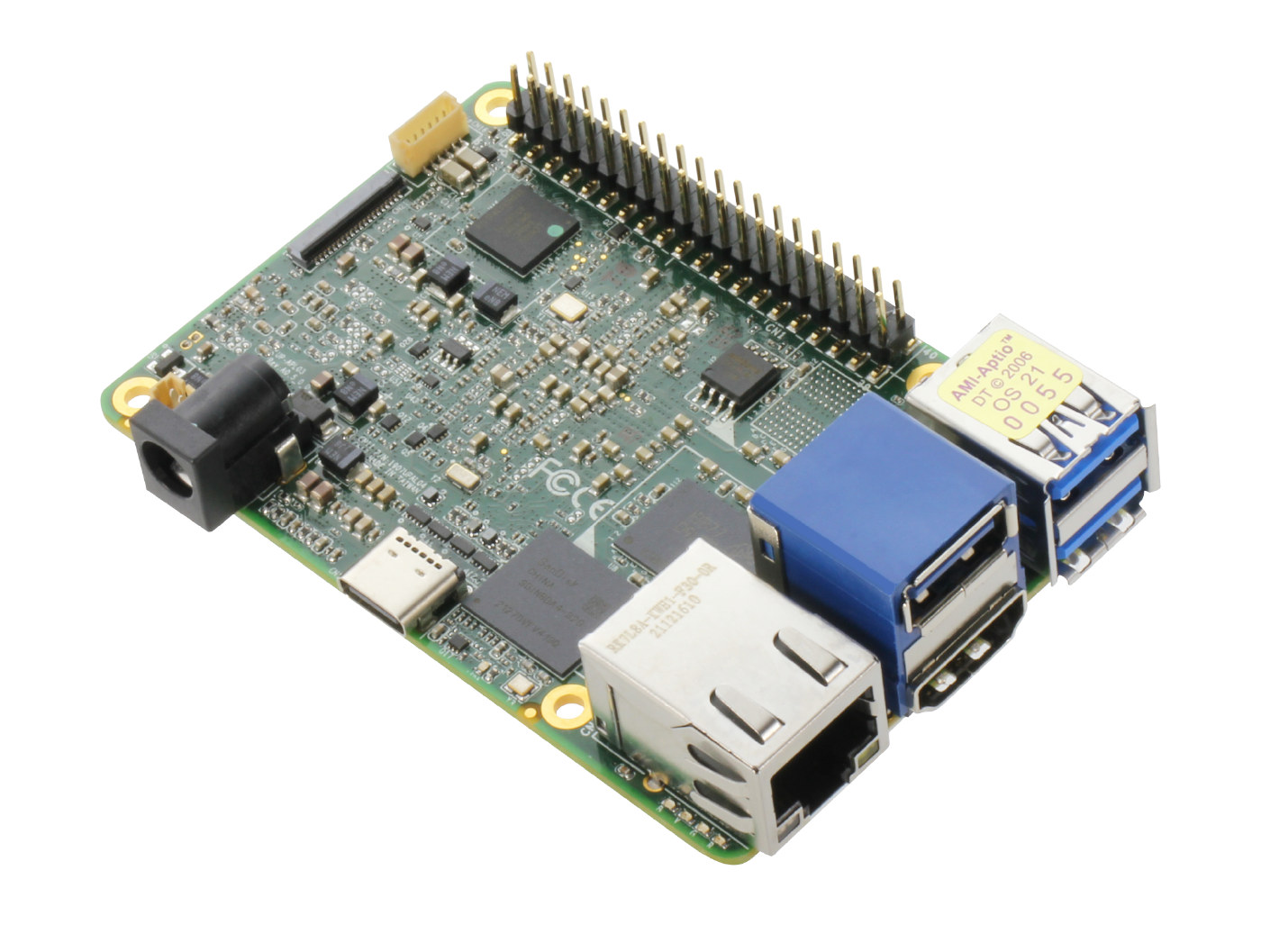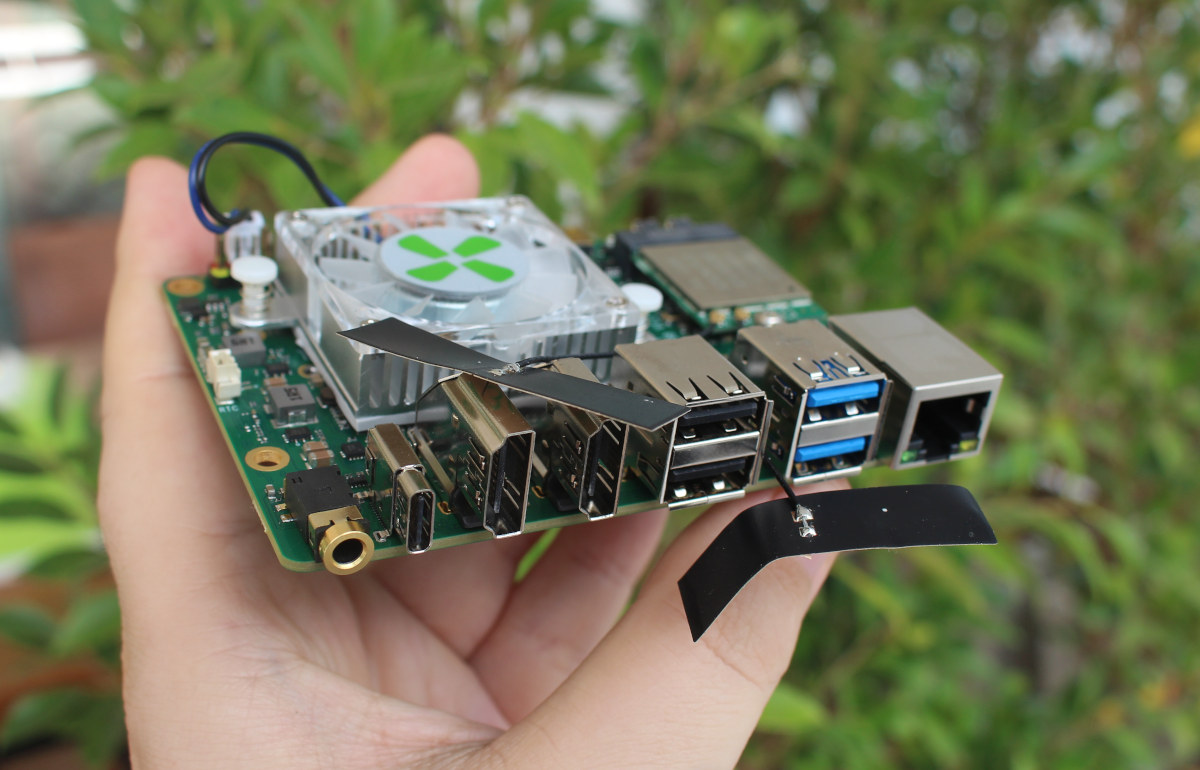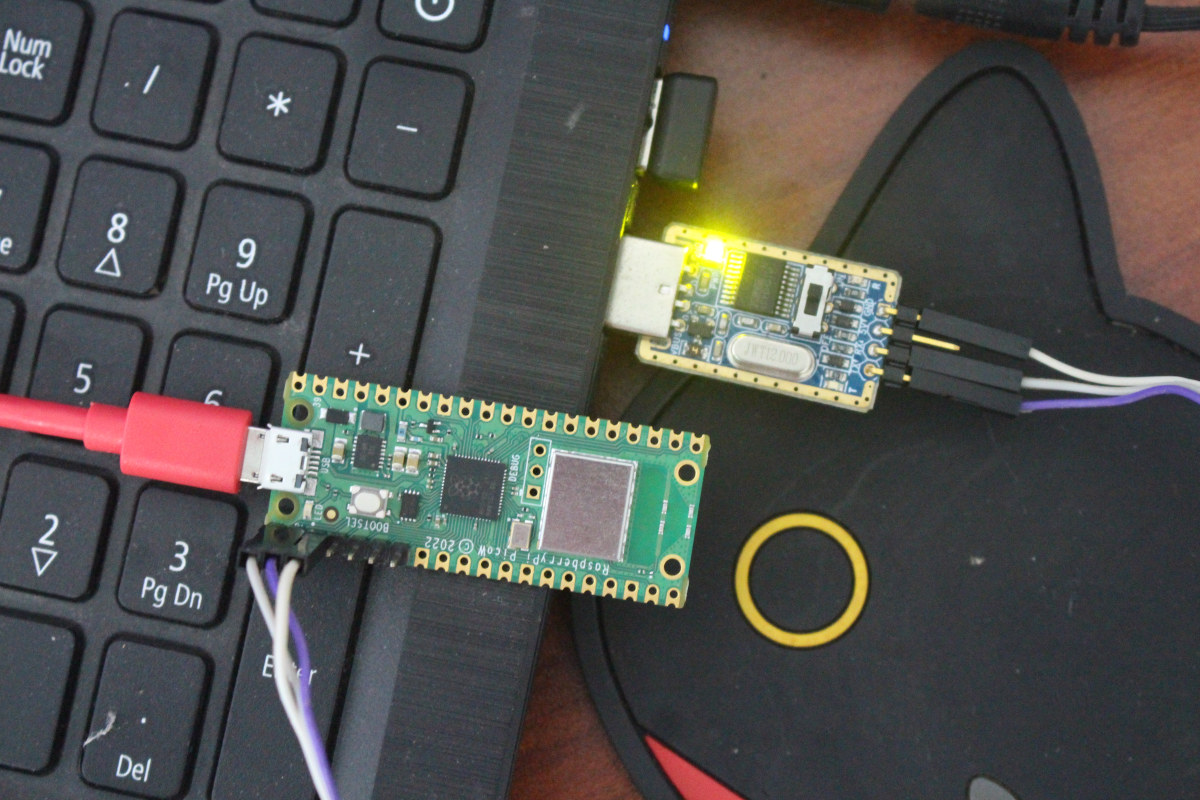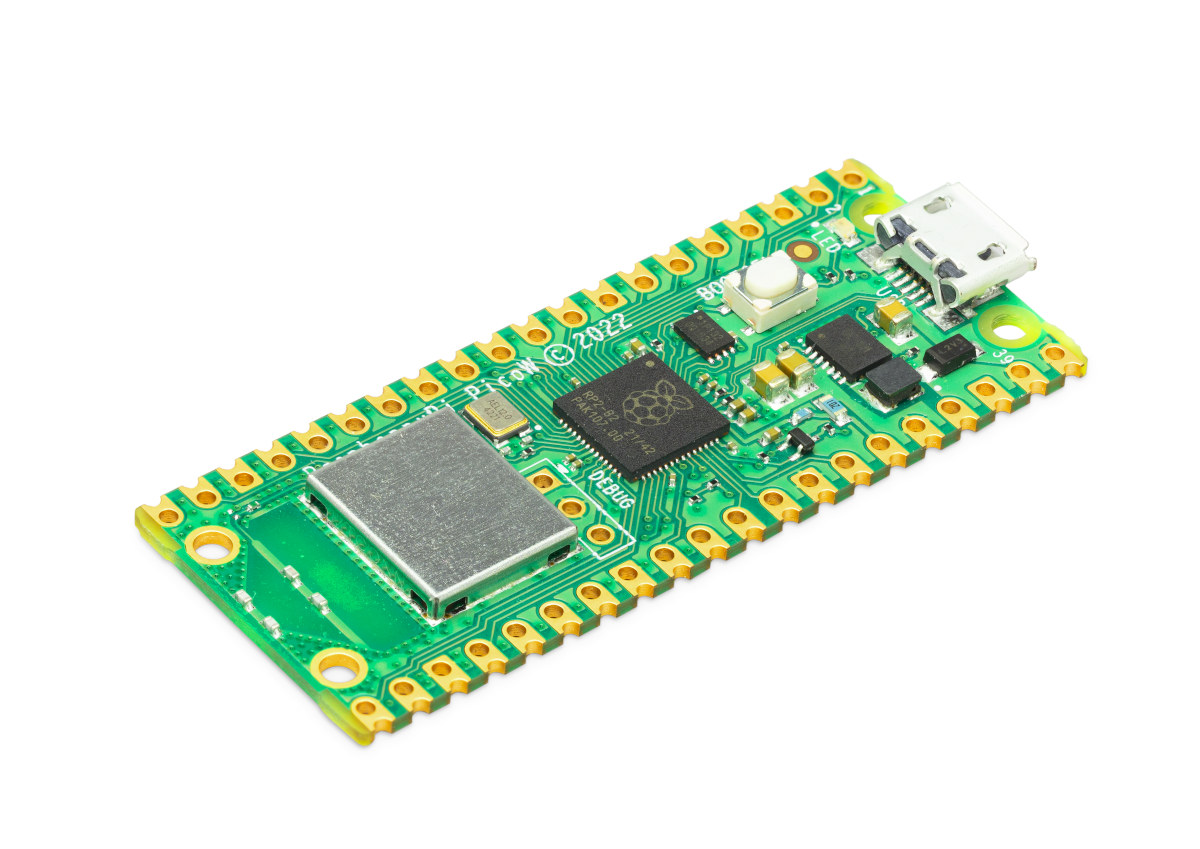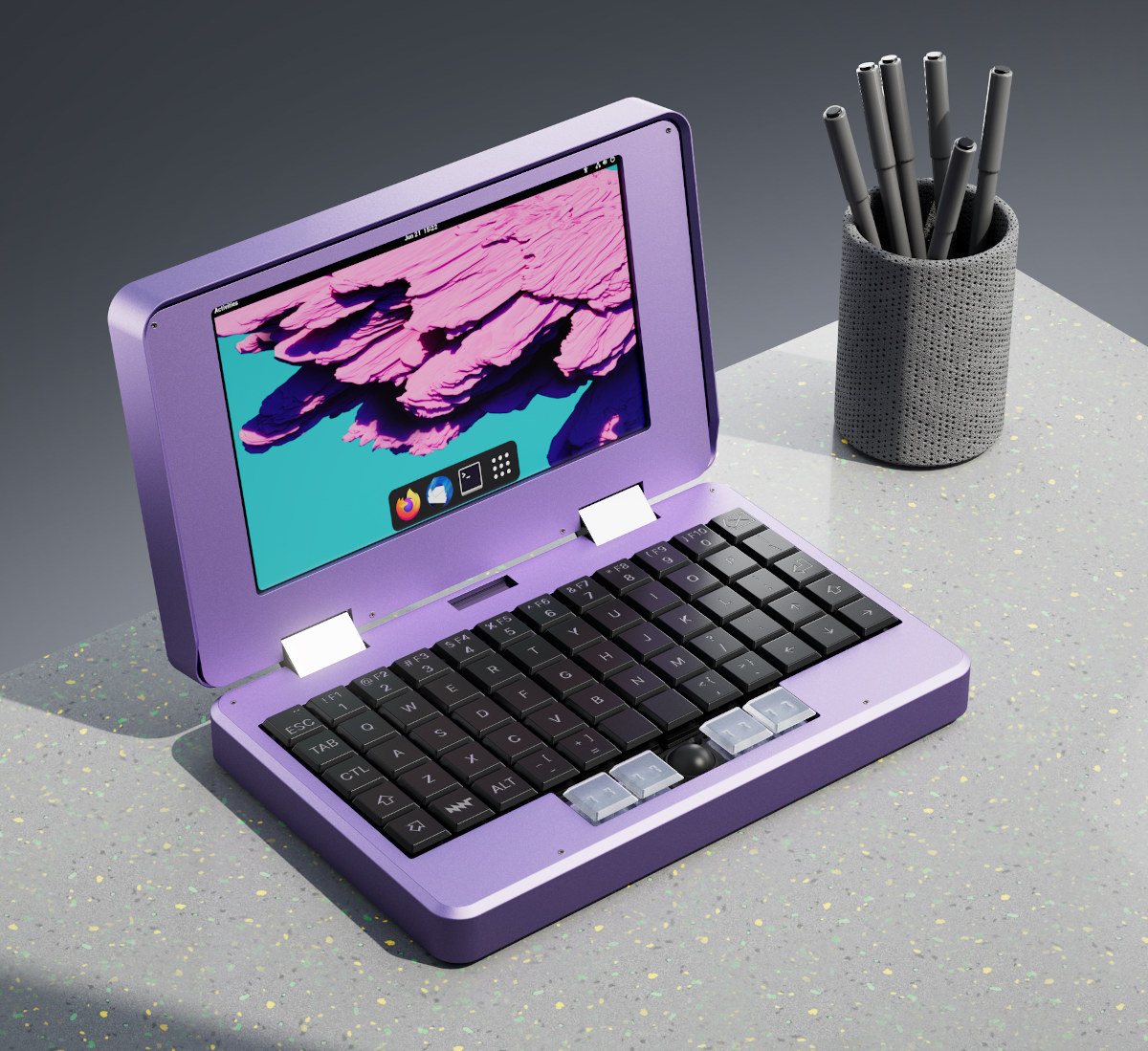We wrote about the UP 4000 SBC with an Intel Apollo Lake processor and Raspberry Pi form factor yesterday. But today, I noticed the UP community had put up a benchmarks comparison between the UP 4000 board, the original UP board (Atom x5-8350), the Raspberry Pi 4, and NVIDIA Jetson Nano. They used several of the Phoronix Test Suite benchmarks running on Ubuntu 20.04 (x86) or Ubuntu 18.04 (Arm) on all four boards. The UP 4000 board used featured an Intel Celeron N3350 dual-core processor @ 2.40GHz, the 2GB RAM version of the UP Board, an RPi 4 with 4GB RAM, and a Jetson Nano developer kit with 4GB RAM. As one would have expected, the UP 4000 is ahead in most tests, even though they did not select a model with a quad-core processor such as a Pentium N4200. Note that reading the table may be confusing as for […]
Using Raspberry Pi Pico as a logic analyzer
MCU boards, including the $1.5 BluePill board, have been used as cheap logic analyzers for years, notably with Sigrok open-source software. So it should come as no surprise the $4 Raspberry Pi Pico board can also be used as a logic analyzer, with one developer claiming it can deliver 100 Msps, or the performance obtained with a 1.6 GHz CPU, thanks to the PIOs from the Raspberry Pi RP2040. Hackaday reported about a Sigrok driver for the Pico last March, but the topic was brought to our attention via a post on Hackster.io about an open-source Windows program developed from scratch to transform the Raspberry Pi Pico board into a logic analyzer capable of 100 Msps. Agustín Gimenez Bernad (aka gusmanb)’s LogicAnalyzer program offers up to 24 digital channels, pre, and post-trigger sampling, edge trigger and pattern trigger up to 16 bits. It can work with the Raspberry Pi Pico […]
UP 4000 SBC is a Raspberry Pi lookalike with an Intel Apollo Lake processor
AAEON has unveiled the UP 4000 single board computer with a form factor and ports arrangement similar to Raspberry Pi 2/3, but powered by a choice of x86 processors, namely the Intel Atom E3900 series, Celeron N3350, or Pentium N4200 all parts of the Apollo Lake family. The first UP Board was introduced in 2015 as a device offering an x86 alternative to the Raspberry Pi 2 with an Intel Atom x5-Z8300/Z8350 “Cherry Trail” processor, but later “UP bridge the gap” boards from the company used larger “Squared” (85.6 x 90 mm) or “Xtreme” (122 x 120 mm) form factors. The UP 4000 SBC brings us back to the original business card form factor but with a boost in performance and various specifications improvements. UP 4000 vs UP Board specifications AAEON says the new board is able to deliver 30% faster CPU performance and twice the 3D graphics performance […]
ROCK 5B developer edition preview – Part 1: Unboxing and first boot to Debian 11
Radxa ROCK5 Model B (aka ROCK 5B) is one of the most anticipated Rockchip RK3588 single board computers due to its features set and relatively affordable price. It was first showcased in January, but it’s taking a while as the Cortex-A76/A55 SoC is a complex beast. The good news is that the public launch is getting closer as Radxa sent “developer edition” samples to developers and enthusiasts for a “debug party”. I was one of the recipients so, in this post, I’ll have a closer look at the latest revision of the board, and give it a quick try first before going into more details in the second of this preview. ROCK5 Model B unboxing I received the 16GB RAM version which should be the same for all board part of the “developer edition batch. Developers are invited to submit reports to Radxa forums, and since those are public, anybody […]
Getting started with WiFi on Raspberry Pi Pico W board
Raspberry Pi Trading announced the Raspberry Pi Pico W board basically based on the same design as the original Raspberry Pi Pico board with RP2040 dual-core Cortex-M0+ microcontroller but adding a wireless module with WiFi 4 and Bluetooth LE 5.2, although the latter is not enabled on the board at this time. The company sent me a sample for review/evaluation, and I’ll focus on the WiFi part since the Raspberry Pi Pico W supports the same MicroPython and C/C++ SDKs as for the Raspberry Pi Pico board plus additional APIs for wireless connectivity. Raspberry Pi Pico W unboxing The board I received was cut from a 480-unit reel, and I also got a one-meter long micro USB to USB cable, which should probably not be included by default for people ordering the $6 board. Just like its predecessor, the board is tiny, and The pinout is the same as the […]
Raspberry Pi Pico W – A $6 Raspberry Pi Pico board with WiFi 4
I was expecting the next official Raspberry Pi board to be either an update of Raspberry Pico with WiFi and Bluetooth or with a machine learning accelerator and the new $6 Raspberry Pi Pico W delivers that wish through the addition of 2.4GHz WiFi 4. Having said that, I was actually expecting a competitor to ESP8266 or ESP32 with a new Raspberry Pi wireless microcontroller, but it did quite happen that way as the Raspberry Pi Pico W features the same Raspberry Pi RP2040 dual-core Cortex-M0+ microcontroller found in Raspberry Pi Pico board coupled with an Infineon CYW43439 chip that’s supposed to support both 2.4 GHz WiFi 4 and Bluetooth LE 5.2. Bluetooth is not enabled right now, but may be at a later stage. Raspberry Pi Pico W specifications: MCU – Raspberry Pi RP2040 dual-core Cortex-M0+ microcontroller @ 133 MHz with 264KB SRAM Storage – 2MB QSPI flash Connectivity […]
MNT Pocket Reform 7-inch modular mini laptop takes a range of Arm (and FPGA) modules
MNT Pocket Reform is an open-source hardware mini laptop with a 7-inch Full HD display, an ortholinear mechanical keyboard, and trackball, that follows the path of its older and bigger sibling: the MNT Reform 2 laptop initially launched with an NXP i.MX 8M quad-core Arm Cortex-A53 module. The new laptop will not only support a similar “NXP i.MX 8M Plus” module but also a range of other Arm modules namely an NXP Layerscape LS1028A module with up to 16GB RAM, the Raspberry Pi CM4 module via an adapter, Pine64 SOQuartz (RK3566, up to 8GB RAM), as well as based on AMD Xilinx Kintex-7 FPGA for industrial use. MNT Pocket Reform specifications: Available system-on-modules Standard: NXP i.MX 8M Plus quad-core Arm Cortex-A53 @ 1.8GHz with 4 or 8 GB DDR4, Vivante GC7000UL GPU, 2.3 TOPS NPU NXP Layerscape LS1028A dual-core Arm Cortex-A72 with 8 or 16GB DDR4, Vivante GC7000UL GPU Raspberry […]
DevTerm portable Linux terminal now supports Raspberry Pi CM4 via a $19 adapter
DevTerm modular, portable Linux terminal initially designed for modules based on Raspberry Pi CM3 form factor, can now work with Raspberry Pi CM4 for extra performance and memory thanks to a $19 adapter. The Devterm was initially launched in 2020 with a 6.8-inch IPS screen, a keyboard with 67 keys, and a battery module, all connected through the ClockworkPi v3.14 carrier board taking a choice of core modules based on Allwinner H6 or Rockchip RK3399 (now supported in Armbian), besides the Raspberry Pi Compute Module 3 mentioned above. More recently, it also got an Allwinner D1 RISC-V module. The Raspberry Pi CM4 module should bring performance similar to the Rockchip RK3399 module for most tasks, although it may vary a lot depending on workloads, and for regular Raspberry Pi users, software that will be more familiar, and may be better supported. I’ve just a bit surprised it took so long, […]


